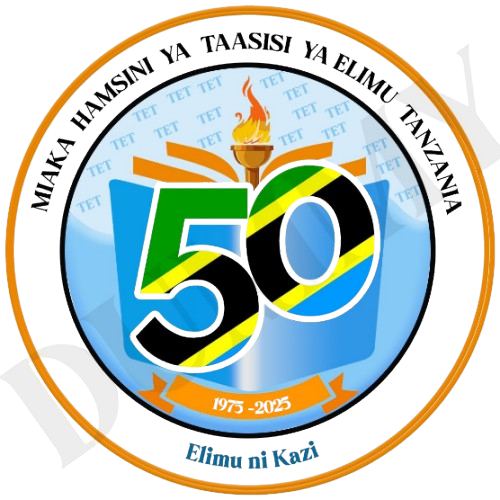Quality Assurance
QUALITY ASSURANCE UNIT (QAU)
Tanzania Institute of Education (TIE) offers quality assurance services through the Quality Assurance Unit (QAU) supervised by the Head of Quality Assurance (HQAU). In the context of TIE, the QAU oversees systematic processes and procedures used to ensure that the quality of education materials that are required to be used in schools from Pre-primary to Diploma teacher education levels are of higher standards and relevant to specific education levels. Key aspects that the QAU uses to evaluate educational materials include: Compliance with the Current Educational Policy and Curriculum, Content Accuracy, Editorial and Language Quality, Pedagogical Effectiveness, Design and Layout, and Quality Printing. There are different guidelines used to conform to the specified standards of accuracy, clarity, and relevance before they become eligible for approval by the Commissioner of Education who is responsible for granting certification to publications that have met the accepted standards. These Guidelines can be downloaded from this website menu specifically Publications then Policies and Guidelines.
Quality assurance of the TIE educational materials such as Curricula and Syllabi, Textbooks, Teacher’s Guides, Manuals, and Modules as well as other Publications involves multiple stages including content development (synopsis writing up to first draft), content editing, language editing, and evaluation process (Evaluation Panel, Academic Affairs Committee Meeting, TIE Council, and Commission Panel for approval).
Meanwhile, Quality assurance of the Private Publisher’s educational materials (Supplementary and Reference books, Literary books, and Electronic Teaching and Learning Content (ETLC) involves multiple stages of the evaluation process, including Pre-evaluation (Initial review), Evaluation Panel, Academic Affairs Committee Meeting, TIE Council, and Commission Panel for approval. However, the Modules prepared by different organisations for specific subject teacher training in specific localities are offered the approval letter by the TIE Director General after meeting the accepted standards.


